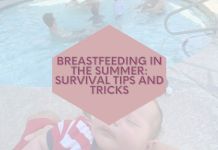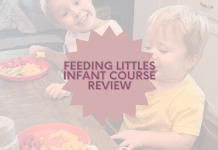From meals to kids’ schedules to extended family gatherings, there’s no less than one million things that us moms schedule, coordinate, and plan. But have you ever thought to plan what would happen to your children if the unthinkable were to befall you and your partner?
I am your friendly neighborhood former Estate Planning Attorney, a mom of three boys, and I want you to know why establishing a will or a trust is so important especially if you have children.
XO,
Megan
Estate Planning Is Not Fun, But Necessary
The most common pushbacks I see from young families who have not yet done any estate planning is:
- “Planning for death is morbid and macabre, and I can’t bear to fathom what would happen in that situation.”
- “We don’t have an ‘estate.’ We aren’t millionaires and don’t own a ton of property or anything.”
To that I say: yes, thinking about death is no fun for anyone. But like most things we have to do as adults, put on your big girl panties, do it, and get it out of the way!
And then, estate planning is not just about your “stuff;” it’s about how your children will be cared and provided for in the event of your death. There is no “estate” more priceless or important to protect than that!
Another aspect that people may not even know about is that estate planning helps plan for your children’s well-being in the event of your incapacitation, as well. Incapacitation could mean anything from you being in a coma or persistent vegetative state to you being unable to reach your family because of extended travel delays (think that poor cruise ship that got stranded at sea for over a month during COVID) or you otherwise go missing.
Someone Is Going to Make Decisions for your Family, It Should be YOU
If you don’t prescribe what happens to your property or your children in the future, the state of Arizona is going to dictate that for you. When a person dies without a will or trust, that person is described as dying “intestate.” And Arizona’s Intestate laws assume they know how the majority of people would like their property distributed and their children cared and provided for.
If you don’t want the government directing your family’s future–especially in regards to whose care your children would be permanently placed in– estate planning is the only way to make sure your family and property are taken care of exactly as you want them to be.
**PLEASE NOTE: The purpose of this post is not to explain in detail all the various estate planning tools and which one is best for your family, and this post certainly does not constitute legal advice for any individual’s personal circumstances. My hope is simply to educate on what estate planning is and why it’s highly recommended for families.
Wills and Trusts
At a bare minimum, every adult should at least execute a will. A will is a written document (executed with certain legal criteria) that simply tells who you would like to receive your property and who would be named as the legal guardian of any minor children if you could no longer care for them.
The will, sitting in a drawer in your office by itself, does not accomplish these goals, however. Upon your death, a will has to be legally processed through what is called the state Probate Court.
In probate court, a judge or commissioner will determine if the will is legal and valid, and then oversees the probate process through which your property is distributed and the care of your children is transferred according to your wishes. This process requires someone of your choosing to be in charge of initiating and directing this probate process upon your death.
Most of the time, this process is relatively easy, and not very burdensome on your surviving loved ones. However, if there is any animosity or tension within your family, the probate process is where anyone with legal standing can object to the will or your stated wishes therein, and the court would then be heavily involved in deciding how best to proceed in the administration of your estate. This could definitely prolong and complicate the probate process.
A trust, on the other hand, is a more sophisticated estate planning tool that appoints a “trustee” over your property and minor children. A trustee is just that: a trusted person that you appoint to essentially administer your estate according to your wishes.
The most advantageous characteristic of a trust, however, is that the administration of your estate occurs outside of the probate court. A properly executed and funded trust never has to be overseen by a court as long the trustee is acting within their fiduciary responsibilities to the beneficiaries, and the trust goes into effect immediately upon your death. No court intervention necessary.
Why Families with Children Especially Need Estate Planning
Whatever you decide to do for your family, a will or a trust is going to hopefully ensure that your specific wishes are carried out for your unique family situation. There’s a lot that unites us as mothers and families, but we’re not all living the same life and no two families want exactly the same thing.
Regardless of the amount of property you own, your estate plan directs the care and financial provision of your minor children in the event of your death. If you don’t tell the state how to proceed, the Intestate statutes and the Child Dependency statutes are going to make that decision for you. Do not rely on state laws to direct the care and provision of your most precious assets, your children.
Estate planning is a crucial part of responsible parenting if you have minor children, but even more so if you:
- Are in any way, shape, or form a blended family (including close relatives outside of your nuclear family being in blended families)
- Have a special needs child
- Have substance abuse or other mental health concerns of anyone in your immediate family
- Have any tension or challenging familial relationships whatsoever with close relatives
The Intestate laws and Child Dependency laws assume a natural progression of who would take custody of your children and inherit your property, usually giving highest priority to your closest blood relatives and then working outward to more distant relatives. Non-blood relatives within a blended family are not given as high a priority, if given any at all.
The hierarchy provided for in the statutes might not align with the specific dynamics of your family. Your “closest” blood relative may not be your first choice to care for your children, especially if your child has extraordinary needs to consider. Or your “closest” blood relative might not be fiscally responsible and be a less desirable beneficiary to inherit your property.
Even if your family is mostly intact and harmonious, it is still highly advisable to make sure that you get to direct the continuity of your family and assets after your passing.
I hope that this information does not just heap another burdensome item on your hopelessly long “To-Do” list, but rather inspires you to take the brave and sometimes difficult step to make sure your children are cared and provided for no matter what.
BONUS TIP: A good, thorough estate planning attorney will not just help you appoint proper legal guardians for your children, but they will also have other supplementary estate planning tools or documents where you can specifically document your wishes regarding the raising of your children (such as a religion you want/don’t want them raised in, extended family members you want/don’t want them to keep in contact with, etc.)
SUPER IMPORTANT EXTRA BONUS TIP: Please do not try to write and execute a will or trust on your own using a “legal document preparer” or any kind of DIY digital service. There may be some financial investment involved in this process, but working with a trusted, knowledgeable, and licensed Estate Planning Attorney will only ensure that your wishes are perfectly documented to save your loved ones any stress following the already difficult season in the event of your passing.










